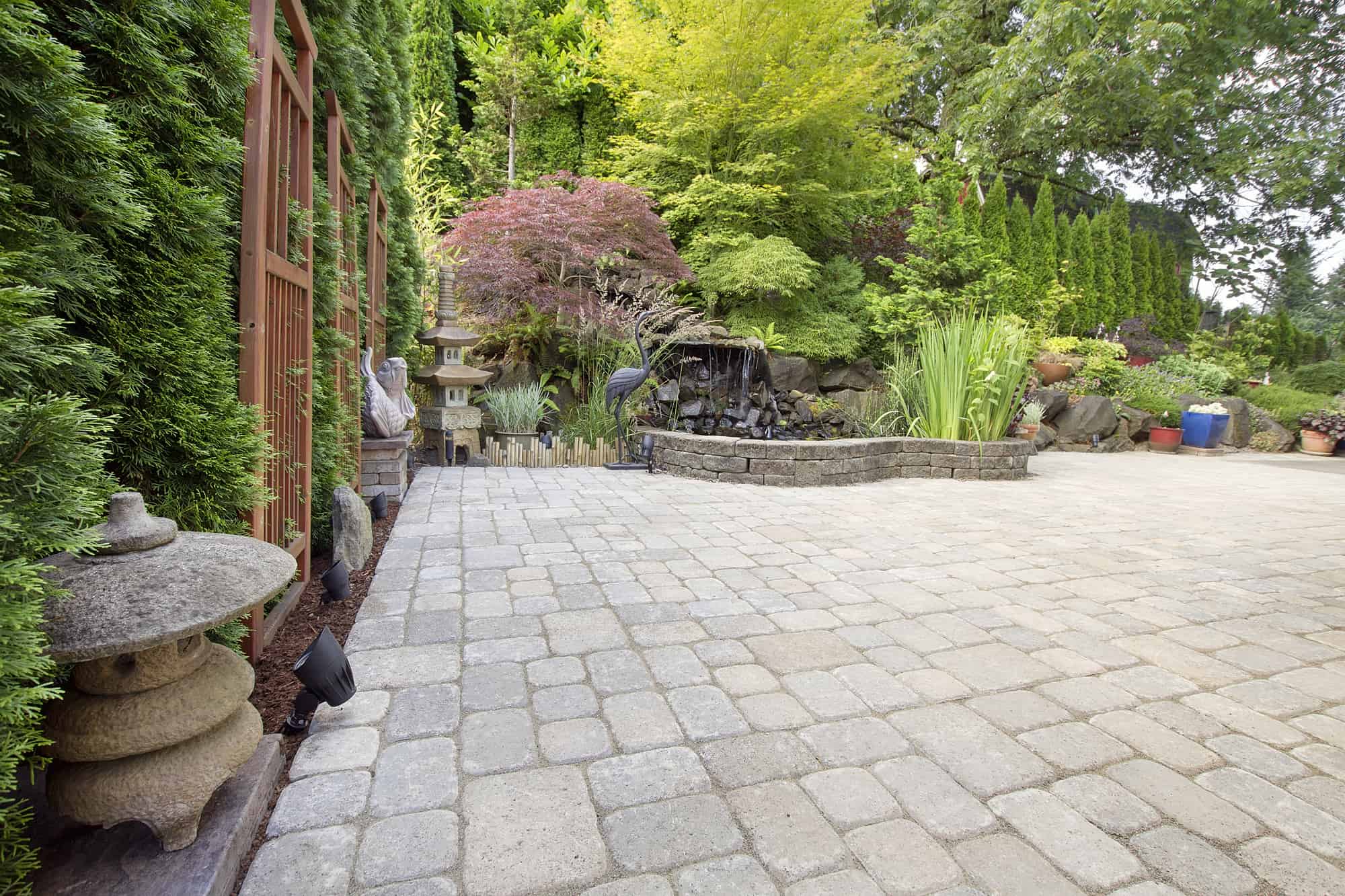I’ve received quite a few questions over the past year from folks asking if they should seal their patio pavers. Either they’re building a new patio from scratch, or just bought a house with an unsealed patio.
Either way, they wonder if it’s worth the effort to go ahead and seal the bricks. The benefits aren’t immediately obvious and many have seen elsewhere on the internet that sealing pavers is optional.
The question has become so commonplace that I have a stock response (and it’s often not the one they want to hear):
There is almost no situation when you should skip sealing your patio pavers. While it’s not necessary to seal the bricks to use the outdoor space, your patio’s longevity will be severely impacted by the oversight. A little laziness now will cost you more time and money in the long run.
Why seal patio pavers?
Patio pavers are porous, prone to fading and stains, and have spaces between each brick. These spaces allow weeds to prosper. Sealing the surface of the bricks will prevent fading, staining, and weed growth from damaging your space, while also protecting from oil and food spills.
Here’s a full list of things that sealing patio pavers will help prevent:
- Weed growth
- Mold
- Moss
- Stains (oil & food)
- Ant invasions
The type of sealant
When choosing a sealant for your patio, there are a few things to keep in mind.
First, you want to consider how much protection you need.
Is your patio used as an outdoor dining space, and you want to protect it in case of spills? Maybe you just want to keep your pavers protected from discoloration from the sun.
Next, consider how you want the patio to look. Are you interested in a glossy finish or a matte one?
Additionally, take into account how much time you have available.
Your patio has to set for a certain amount of time before you seal it, and if you cut yourself too short on time, you may not be able to make your deadline.
Finally, consider the type of finish you want on the final product.
The two main types of sealants are matte and glossy. There are a few different sealant finishes:
- Color Boost
- Wet Look
- Natural Look
- Clear Look
How long to wait before sealing
The length of time you’ll need to wait before sealing your patio depends mainly on the type of sealant you’ll be using.
If you are using a non-film-forming sealant, your patio will be ready sooner. You’ll only have to wait one week before you can seal your pavers. A film-forming sealant will require a longer wait — a 30 day wait time to avoid trapping moisture under the protective barrier.
Before or After Sand?
If one of your goals is to prevent the growth of weeds and other vegetation, you should add sand before sealing.
The gap between your pavers is the perfect spot for weeds to grow, even after adding sand.
To avoid unsightly vegetation invading your pavers, deprive them of water by sealing the surface of the patio. To be clear, add sand before you seal your patio pavers. This has the added benefit of stopping ants in their tracks — ensuring that they don’t burrow into your pavers.
Most of the newer paver sealers work as a hardener for the sand in the joints and sealing your pavers, functioning much like tile group.
As always, read the label of the sealer before committing to one.
Will Sealing My Patio Make it Slippery?
A slippery surface is a legitimate concern for homeowners for many reasons. You want to protect your guests from untimely falls — both for their sake and your own. Most patio paver sealants will not measurably make the surface more slippery.
Pavers have a lot of natural texture and adding a thin layer of sealant doesn’t make a huge difference.
With that said, you can expect the walkways to be slick when wet if you use a glossier sealant. Take extra caution using a glossy sealant near pools or in an area where kids play in the water.
Remember to Reseal
Sealing your pavers is a smart plan to ensure your patio continues looking great, but unfortunately, the seal doesn’t last forever. Regular maintenance is required to keep your patio looking new.
You should plan to reapply your sealant every 3-5 years if you use a water-based sealer. You’ll need to apply it even more frequently if you use an acrylic-based sealant.
When you get ready to reseal your patio, ensure you are using the same type of sealant used initially.
Final Thoughts
When it comes to planning your new patio in your backyard, you may be wondering if sealing the pavers is the right choice for your home.
In most cases, sealing your pavers is a smart decision, unless you want the overgrown or rustic look. If you’re going to keep your pavers looking fresh and new, then finding a sealant would be a smart choice.
Sealing your pavers prevents discoloration from the sun or spills, helps prevent plants from growing in the spaces, and prevents shifting and sand loss.

